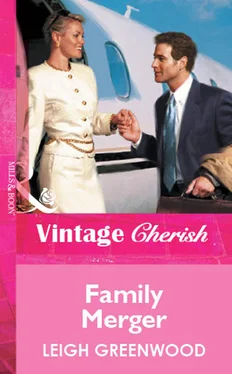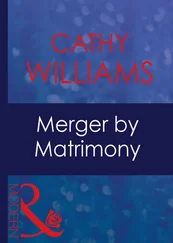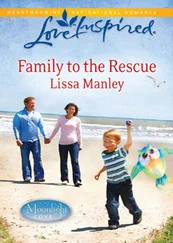“And if they don’t?”
“I keep after them.”
“Why?”
“I can’t stand it when people make stupid decisions.”
“You can’t be judgmental,” Kathryn said. “There’s no right or wrong with people’s feelings. All feelings are okay.”
“That’s ridiculous.”
“What would you say if I told you your feelings for Cynthia and her situation were all wrong?”
“I’d say you were nuts.”
“As long as you feel like that, you’ll never be able to understand her or make her care how you feel.”
“But you don’t want me to tell her what I feel.”
“She already knows.”
“Then what’s this sensitivity mumbo jumbo all about?”
“She needs to feel you’re not angry at her, that you’re not condemning her. Most important of all, she needs to feel you still love her.”
“Of course I love her. But I’m not going to tell her I’m glad she’s pregnant at sixteen, or that I’m looking forward to meeting the horny kid who’s responsible for this.”
Kathryn supposed she couldn’t blame him for being upset. “Mr. Egan, you can’t say anything like that to Cynthia.”
“Why not?”
“Because it will prove to her you don’t understand her feelings.”
“I don’t.”
“Then it’s up to you to change enough so you can.”
He sat there a moment, apparently thinking of one response after another and rejecting them all.
“And how do you propose I do that?” he asked finally.
“You can begin by asking Cynthia how she feels about what’s happening, about the kind of future she wants for her and her baby. You don’t have to agree with what she says, but you have to make her feel you’re not condemning her in any way. And when you do make a decision, she has got to feel you’re putting her wishes ahead of your own.”
“She’s sixteen. She doesn’t know what’s best for her.”
“Then you have to be so sensitive to her thoughts, you can guide them without her knowing you’re doing it.”
“I can’t do that.”
“Isn’t that what you do in your business, convince people your way is the right way?”
“I don’t waste time letting them think they’re right in the first place. I knock the props out from under them within ten minutes. I destroy their security so completely they can’t help but look for another way out.”
“Maybe you should have talked to your wife more.”
“Erin never asked me to stay home from a meeting or to leave the office early. My success was as important to her as it is to me.”
Kathryn couldn’t understand any woman feeling that way. “I don’t think it’s important to Cynthia.”
“Then what is?”
“You are.”
“She goes to the best school, we live in a new house in the best part of town and she has four people who are paid to see she has everything she needs. What else can I do for her?”
“You can stay home more. You can make her feel she’s more important than your work.”
Ron reacted as though she’d slapped him. “My work has never been as important as Cynthia!”
“Then why were you in Switzerland?”
“Because it’s my job.”
“Are you sure it’s not about making more money, about control rather than making a company more efficient?”
His lips had thinned to an angry line. “What do you know about business?”
“Not as much as you do, but my father is a businessman and he’s never home. Not one of his four children believes we or our mother are as important as his work.”
He looked at her for a long moment. “Okay. Since you feel what I’m doing isn’t working, what do you propose I do?”
“You could begin by taking a leave of absence from your job. You’ve got enough money to retire right now.”
“And sit around all day understanding my daughter and some boy I have yet to meet?”
“That’s a good place to start. Cynthia obviously isn’t as materialistic as you. You need to try to see the world from her viewpoint.”
“Did you ever ask your father why he worked so hard?”
“Yes.”
“What did he say?”
“For his self-respect.”
“Did you understand that?”
“Not really.”
Ron suddenly seemed charged with energy. “Tell your housekeeper we’ll be gone for a few hours.”
“I can’t leave.”
“You’re teaching me to be sensitive. Remember? Well, you can’t do that if you don’t understand my feelings, and you never will unless I show you a few things you know nothing about.”
“Where are we going?”
“Somewhere I’m sure you’ve never been before.”
Kathryn had ridden in several Bentleys before but never in one she was certain cost more than three hundred thousand dollars. She was just as certain the car had never been down these particular roads. Neither had she.
“Where are we going?” she asked.
“Where I grew up,” Ron said.
They had left Charlotte and were somewhere in what she presumed was the far reaches of southern Mecklenberg County. It was an area where small farms were either still in production or had been allowed to grow into young forests. Some areas next to Lake Wylie had been developed into upscale resorts. Ron pulled off the road into the parking lot of a local fish camp, turned away from the restaurant, and drove into a strip of woods. When they emerged on the other side, she saw the trailer park.
Ron pulled the Bentley to a stop near a small trailer. The grass around it had been cut recently, but the steps had collapsed and the trailer had rusted badly. “That’s where I grew up.”
“Does anyone live here?”
“No. I still own it.”
“Why?”
“So I never forget where I came from.”
Kathryn looked at laundry hanging on lines, children playing in the spring sun wearing nothing but dirty underpants, two women looking tired and worn down, and a hound dog lazing in the sun. Kathryn felt as if she were gazing at the set for a black-and-white movie set in the fifties.
“I lived here until I was fourteen,” Ron said. “I was ten years old before I knew enough to hate it.”
“What happened?”
“We had court-ordered busing for desegregation. I got sent to a wealthy white neighborhood where I saw kids I thought existed only on TV. I came home and told my parents, but they didn’t care that I didn’t have a winter coat or shoes without holes in them as long as they had enough booze. The rich kids had so much stuff they didn’t bother keeping track of it. I got a coat from the lost and found. I even found a pair of shoes my size.”
He sounded as though he were talking about somebody else, but Kathryn knew he would never have held on to the rusting trailer if he didn’t still feel the hurt.
“When I heard one of the boys say Charlotte Country Day School was giving scholarships to smart kids, I made up my mind to get one. My parents didn’t want me mixing with the rich kids. They thought it would turn me into a snob. I didn’t know what was at that school, but I knew it was something I wanted.”
“I gather you got that scholarship,” Kathryn said.
He nodded. “But I didn’t get what I wanted. I was overweight, wore glasses, was smarter than anybody else in my class, and I was a trailer park kid. I had nothing to do but study hard so I could win a college scholarship.”
“To Yale.”
“And Harvard for my MBA.”
“Your parents must have been very proud of you.”
“My parents were supposed to come to my high school graduation. I was valedictorian. I wanted them to see what I’d accomplished. I wanted them to be proud of me.”
Ron’s voice had taken on a different tone, one she could only describe as trying to keep some fierce emotion in check.
Читать дальше












